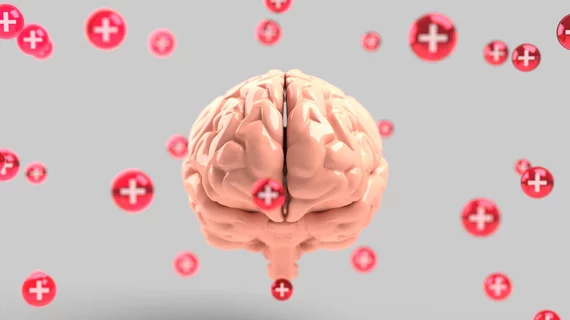Hybrid PET/MRI spares 20% of brain tumor patients from unnecessary follow-up treatment
A molecular, hybrid imaging approach accurately detects malignant brain tumors while also preventing unnecessary invasive procedures, recently published research suggests.
Combined PET/MRI scanning with radiopharmaceuticals such as 18F-fluorethyl tyrosine (18F-FET) has proven to enhance diagnostic performance, but there’s less evidence such imaging impacts clinical decision-making. German researchers tested the approach in patients with brain tumors, reporting positive results.
Looking at nearly 200 patients, 18F-FET PET/MR spotted new malignant tumors with 85% accuracy. The hybrid method changed providers’ management plans in 33% of cases and prevented 20% of all participants from undergoing unneeded follow-up procedures.
“Therefore, 18F-FET PET/MR at new diagnosis may particularly benefit the significant proportion of patients with non-malignant brain tumors, for whom a watch-and-wait strategy is sufficient,” Cornelia Brendle, with the Department of Radiology at University Hospital Tuebingen and co-authors wrote in the Journal of Nuclear Medicine.
The retrospective investigation included 189 brain tumor patients who underwent multiparametric 18F-FET PET/MR imaging between 2017-2018. Cancer detected in untreated, suspected lesions was considered a new diagnosis.
The imaging approach successfully identified if cancerous tumors were growing (true progression) or if therapy was causing changes detected on imaging with 93% accuracy. Brendle et al. said PET/MR may more quickly guide therapeutic decisions and save patients with “severely” reduced life expectancies precious time.
While the group did not directly study outcomes and cost-effectiveness, it “seems reasonable” that bypassing unnecessary follow-up treatment and fast-tracking clinical decisions are beneficial, the team added.
“Adding 18F-FET PET to MR, for example, in a hybrid scanner has been reported to be reasonable in terms of cost-effectiveness in selected patients,” the group noted. “Further studies considering these aspects might evaluate finally if 18F-FET PET/MR as a hybrid modality qualifies for evidence-based use in clinical routine.”
Read more here.

